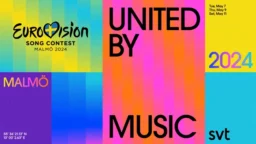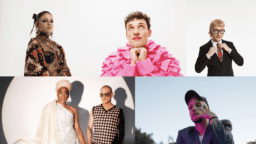In 2016 we started Eurostory, a literary-journalistic website about the Eurovision Song Contest, bustling between April 1 and May 15.
Eurostory broadens your view, is cheerful and factual. It’s not cynical, contemptuous or negative.
We write:
- Articles about, for example, the political background of participation, the importance of the Contest for certain ethnic communities or about neglected aspects of the Contest
- Dossier Ukraine. Articles, general surveys and interviews which paint a wider picture of the country that organizes the Contest this year
- Interviews with former participants about writing lyrics, the stories behind their music and the meaning of three minutes of fame
- Odes to a Eurovision Song Contest participant or someone/something else who/that is involved with Eurovision
- Current affairs: the latest news about this year’s Song Contest
- Columns by different authors
- Book reviews of books by or about Song Contest participants
- Hindsight listening articles in which we listen to and analyse famous Eurovision songs or National finals of the past
- Album reviews based on the most beautiful phrases from new albums by Song Contest artists
- Concert reports about a concert by a former Eurovision participant
- Comics by different artists
- Photo comics by the photo comics artist of the Low Countries: Ype Driessen
- Lisbon 2018 Report during the week of the Contest, live from Lisbon, with viewer guides and final conclusions
One of the initiators of this site, Ellen Deckwitz, about our intentions:
‘In our opinion the Dutch press coverage of the Contest leaves much to be desired. Most articles, even those in quality papers, are peppered with prejudices and wet comments, while tens of thousands of Dutch fans closely follow Eurovision and long for more professional news coverage and extensive background stories.
There is a bigger story behind this Contest than that of favouritism and cheap outfits. It is about a highlight or a low point in someone’s career, about giving a voice to minorities, it can be a statement with regard to current world events. The songs and the Contest at large show Europe in its versatility.
Therefore, the Eurovision Song Contest deserves better journalistic attention than it has received in Holland up to now. Focussing on the jokes that can be made about such a Pan-European event is a lost opportunity. We want to practise open-minded journalism and to approach the Contest from several points of view: political, diplomatic, literary, et cetera. In order to show a story about Europe by means of the songs, to foster sympathy for mutual differences and to celebrate Europe’s versatility.’

